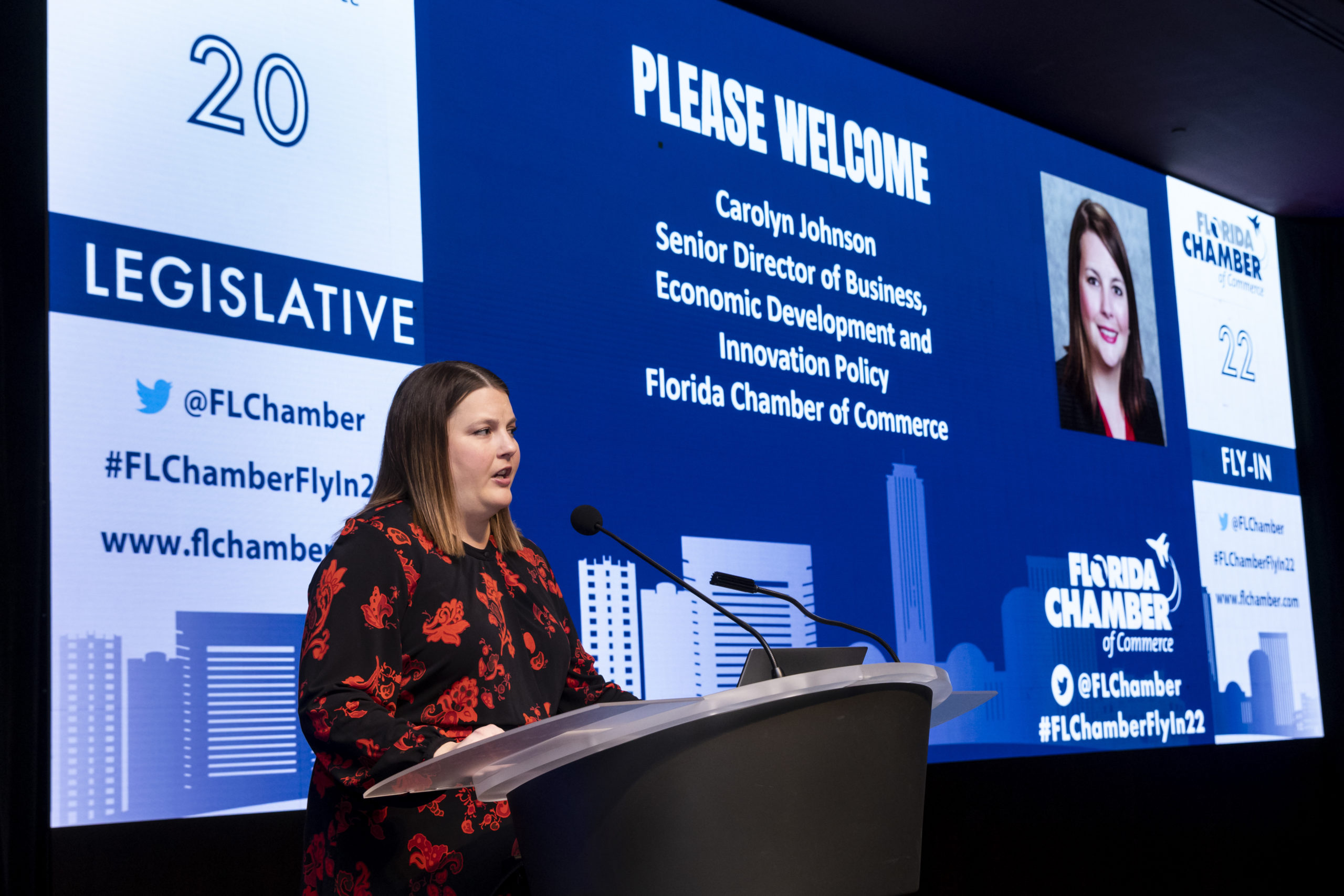
By: Carolyn Johnson, VP of Government Affairs, Florida Chamber of Commerce
According to TheFloridaScorecard.org, Florida has the 5th worst legal climate in America. Recently, Governor Ron DeSantis, Senate President Kathleen Passidomo, and House Speaker Paul Renner announced their shared priority of passing the “most significant legal reform in modern history” during the 2023 legislative session to “decrease frivolous litigation and prevent predatory practices of trial attorneys.” A long-standing Florida Chamber priority, Florida’s lawsuit abuse climate is an area where Florida is lagging when Florida has otherwise led the way in creating one of the most business-friendly environments in the nation. The lawsuit abuse reform package, HB 837 by Representative Tommy Gregory, takes significant steps in improving two Florida 2030 Blueprint goals.
Florida 2030 Blueprint Goal: Legal Climate Improves From 5th Worst to Top Quartile in the Nation
Florida’s bottom-five legal climate impacts the state’s competitiveness in an otherwise business-friendly environment and negatively impacts Floridians through increased costs on everything from groceries to car insurance. A recent national study found Florida’s lawsuit abuse climate costs Florida families an additional $5,065 each year in increased costs due to lawsuit abuse – money that could have been spent on childcare, family, transportation, or even savings. What Florida spends on lawsuits accounts for over 3.6 percent of Florida’s $1.4 trillion economy – this means over $50 billion each year is spent on litigation and no other state spends this percentage of GDP on litigation costs.
HB 837 includes long-standing Florida Chamber priorities that will improve Florida’s legal climate and align Florida’s legal system with several other states around the country. These reforms include reducing the statute of limitations to file a lawsuit from four years, which is an outlier, to two years, realigning contingency fee multipliers to the federal standard, requiring juries to hear actual damages instead of phantom damage amounts, and repealing Florida’s unique one-way attorney fee statute for insurance claims. If these significant reforms are signed into law, they will go a long way in improving the state’s legal climate.
Florida 2030 Blueprint Goal: Regulatory, Labor, and Operating Risk Environments Rated among Top 5 in the Nation
Florida businesses regularly build unknown litigation costs into their operating budget to defend against meritless litigation due to Florida’s lawsuit abuse crisis. When businesses build unknown external costs into their budget, they are not able to provide the best good or service at the lowest cost to their customers. Businesses require operating consistency and certainty, and in Florida’s existing litigation climate, they have anything but certainty.
From 2011 to 2021, the number of auto glass lawsuits filed in Florida went up by over 4,000 percent – from 591 lawsuits filed in 2011 to 28,156 in 2021. Furthermore, under current Florida law, a plaintiff can sue for damages when they are up to 99 percent at fault for their injury. Businesses in communities all around our state cannot operate at their highest capacity when lawsuits against them are increasing 4,000 percent in ten years or when they are constantly being sued for something the business has little to no control over.
HB 837 aligns Florida’s fault standard with the majority of states where a person cannot sue for damages when they are more than 50 percent at fault for their injury. Additionally, the proposed legislation repeals Florida’s fee shifting one-way attorney fee statutes, a long-standing Florida Chamber priority. This will curb the significant increase in lawsuits over low-dollar auto glass claims which raises the cost on every Floridians’ auto insurance policy. When bogus claims drive up insurance costs, we all pay more. If these much-needed reforms are addressed during the upcoming legislative session, the operating risk for local businesses will be much improved and Florida’s competitiveness enhanced.